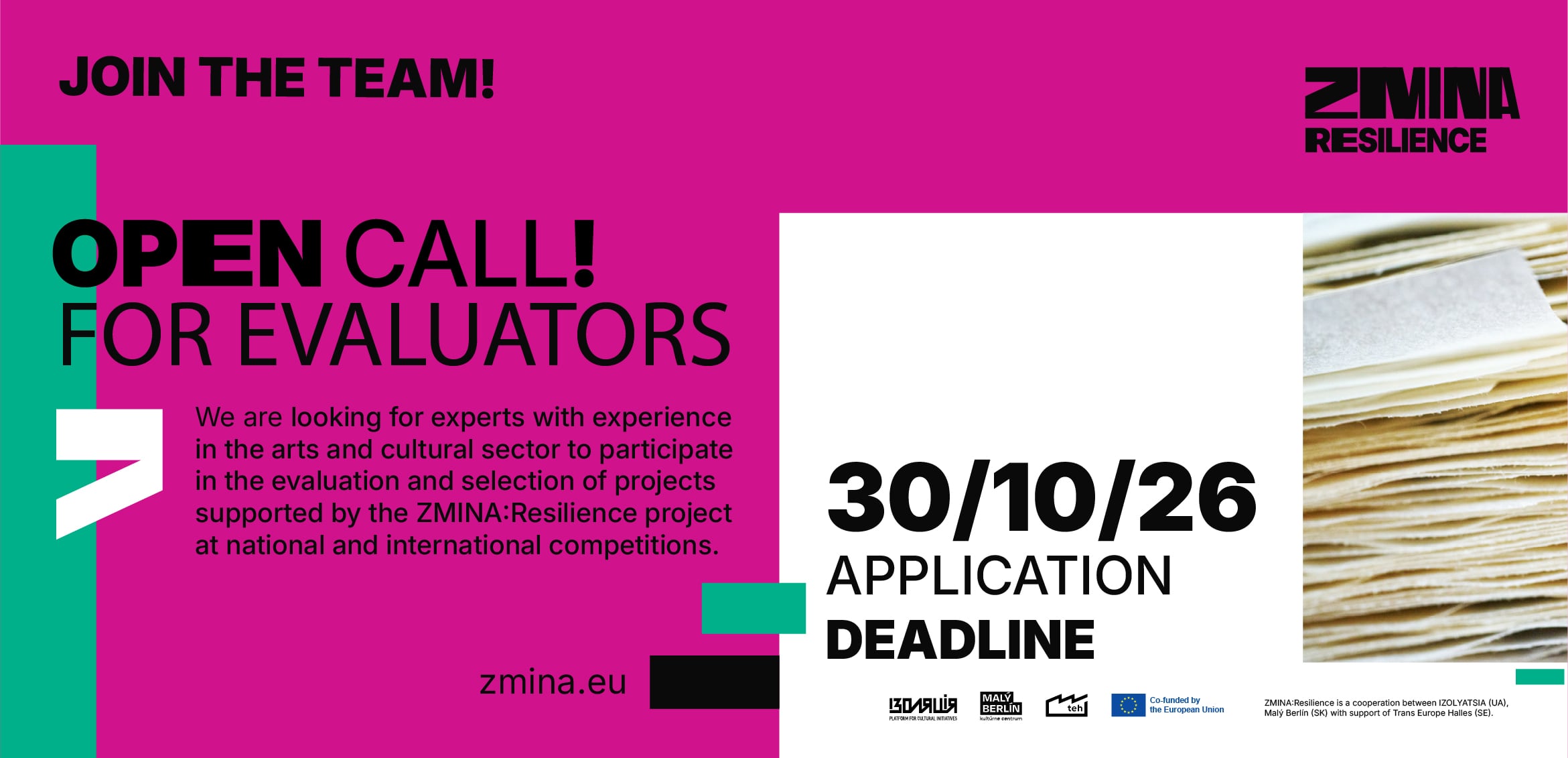ZMINA: Resilience team is looking for evaluators

IZOLYATSIA is looking for experts with experience in the arts and cultural sector to participate in the evaluation and selection of projects supported by the ZMINA:Resilience project at national and international competitions.
Within the ZMINA:Resilience project, four separate calls for project proposals are planned: three waves to support the creation of international projects and one ongoing call, which will remain open for applications to fund the dissemination of artworks, with selections every three and four months over a period of 16 months. This approach ensures flexibility and accessibility of the competitions for participants.
Indicative evaluation period:
- Seed funding for the development of new projects — December 2025
- First wave of “Support for international cooperation projects” — May 2025
- Second wave of “Support for international cooperation projects” — December 2026
- Showcasing cultural and creative products with a rolling call — September 2026, December 2026, March 2027, June 2027, November 2027.
Tasks of the experts:
Selected experts will evaluate proposals from applicants for the seed funding, support for international cooperation projects, and dissemination of cultural and creative products.
Applications for the ZMINA:Resilience project, seed funding for the development of new projects, must be submitted in Ukrainian.
Applications for the ZMINA:Resilience project, “Support for international cooperation projects” and “Dissemination of cultural and creative products”, will be provided for evaluation in English.
Experts must complete the evaluation within one month after the application deadline.
ZMINA: Resilience is a cooperation between IZOLYATSIA (UA), Malý Berlín (SK) with support of Trans Europe Halles (SE).
Co-funded by the European Union. Views and opinions expressed are however those of the author(s) only and do not necessarily reflect those of the European Union or European Education and Culture Executive Agency (EACEA). Neither the European Union nor the granting authority can be held responsible for them.